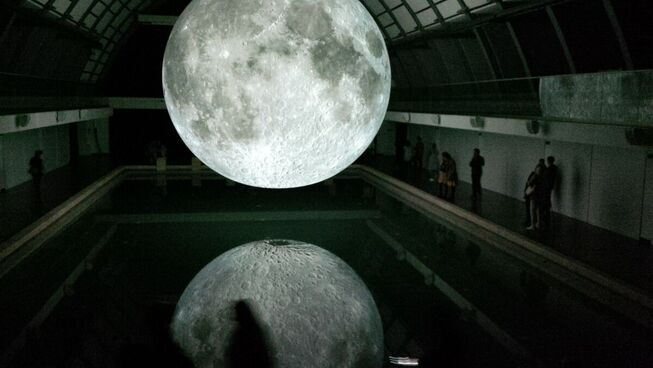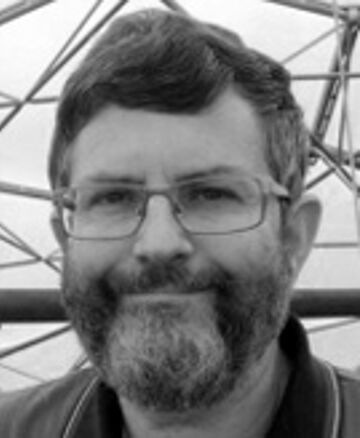Why do we explore space?
It's been 50 years since the moon landing and we reflect on what was achieved in that momentous event. We also wonder where to next as we meet a woman on a one way trip to Mars! An entertaining conversation to inspire and expand your horizons.
Our guests
Dr. Jonathan Clarke is a session instructor in astrobiology at Swinburne University, the President of Mars Society Australia and a director of ISCAST - an organisation for Christians in Science.
Dianne McGrath is an astronaut candidate, sustainability consultant, PhD researcher, blogger and one of the final 100 candidates for the Mars One human settlement project.
Dr. James Murray is a former astrophysicist and senior program manager at Astronomy Australia. He is also president of Mount Burnett Observatory, a community astronomical observatory in the Dandenong Ranges, East of Melbourne.
Keep exploring
To accompany this episode we’ve put together a fantastic resource which helps you keep exploring the big questions raised by space exploration at your own pace and in your own style. In this resource we ask questions like ‘Why are we moved by the stars?’ and ‘Why is the idea of space so often connected with the idea of God?’. We include quotes from believing and non-believing astronauts, cosmonauts, cosmologists, authors and even the Bible. It has a picture of the famous Earthrise picture for you to marvel at. The resource is here.
So please use it. reflect and continue exploring the bigger questions. This might even be something you can do with others - so why not share the show with a friend and then catch up over a coffee or even a lunar cheesecake ice-cream, and start a bigger conversation. Let’s get more people asking the bigger questions.
Invest in Bigger thinking for as little as US$1 per podcast on Patreon.
Bigger Questions asked in the conversation
So this year marks the 50th anniversary since the moon landing and the time that. Now, I am revealing my age, but I wasn’t actually actually alive 50 years ago. Jon - you were alive for the moon landing, do you remember much?
What impact did the moon landing have on you?
Smaller Questions
To kick off Bigger Questions we like ask a couple of smaller questions - we do try to have a bit of fun on the show. Today we’re asking three space experts on why we explore space as we reflect on 50 years since the moon landing. So I thought I’d test you on: How much do you know about the moon landing?
Reflecting: motivations for the moon landing
It’s intriguing that today about 5% of Americans believe the moon landings were faked and a documentary called, `Conspiracy Theory: Did We Land on the Moon?' raised a number of evidences to suggest that the moon landing was faked. The documentary claimed that NASA did not have the technical capability of going to the Moon, but pressure due to the Cold War with the Soviet Union forced them to fake it. So James, are we celebrating 50 years since one of the greatest hoaxes of all time, or did the moon landing really happen?
Historians claim God, gold and glory as motivations for European colonial expansion. Do you think these motives also apply to our desire to explore space?
Reflecting: achievement on getting to the moon
So what was achieved by going to the moon? The famous line was: ‘one small step for man, one giant leap for mankind’. What do you think in particular was the giant leap?
What did we learn about ourselves in the moon program?
The appropriateness of the Bible’s place - reflections on “in the beginning…. God
In December the Apollo 8 mission succeeded in becoming the very first human mission to orbit the moon. Then in a transmission broadcast to the whole world, on Christmas Eve 1968, the astronaut, William Anders, said:
'We are now approaching lunar sunrise, and for all the people back on earth, the crew of Apollo 8 has message that we would like to send to you:
"In the beginning, God created the heaven and the earth”
This was the very first verses of the Bible from Genesis Chapter 1 and then Anders, James Lovell and Frank Borman proceeded to read the creation story of the Bible, verbatim, Genesis 1:1-10.
So what are your reflections on these Bible verses being quoted on the Apollo 8 mission?
Why is the idea of space so often connected with the idea of God?
Challenge to faith
Although being in space was a challenge to the faith of some. William Anders, the one who had read the first chapter of Genesis, later said,
When I looked at the earth on the way back and time to be a little more contemplative, it underscored that thinking really for the first time, that we are a small piece of an almost infinite universe. Before the flight I was a catholic and had communion from my old parish priest but I must say my faith was somewhat undercut as I looked back at a tiny earth and … I got to thinking, is that really the centre of the universe?
Jonathan, it seemed that the change of perspective was significant for Anders. You are a Christian believer, do you think your faith would be undercut if you were presented with the Earth in the different way as Anders was?
Where to next? Mars and the Mars One opportunity
So it’s been 50 years since the moon landing, but there seems to be something about the human desire for exploration and the big question is now, where to next? And it seems that Mars is the focus and potential destination for human exploration.
Now, Dianne, you are a candidate for the Mars One human settlement program. Now the goal of this is to establish a human settlement on Mars. Can you share a bit about the program, because this is a one-way trip, is that right?
There were over 200,000 global applicants for the Mars One opportunities and you are now one of the final 100 left. Why do you think there was so much interest?
What was it like to be selected as one of the final 100?
What motivates you to consider leaving everything they have ever known and moving to Mars? Is it because you hate the Earth with a passion and can’t wait to leave?
What would you be sacrificing for such a trip?
How have you prepared for such a trip? Do you eat a lot of Mars bars?
James, Jonathan - would you be keen for a one-way trip to Mars? Why is that?
Do you think it’s possible to establish a human settlement on Mars or the moon?
The Big Question
So to our three space travellers: why do we explore space?
Let me leave you with what was quoted by Apollo 8 astronauts orbiting the moon, as a message to the Earth from Genesis 1:1:
In the beginning God created the heaven and the earth






